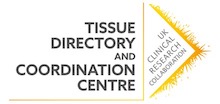A recent study has found that only around 9% of biobanks have a publicly available access policy.
Given that most biobanks are funded by the public, there is an expectation that the samples they contain are made available for external research purposes that could ultimately have a social benefit. But for this to happen, clear access policies need to govern the conditions under which samples can be used for external purposes. Biomedical samples are finite resources that can be used up, so their use should be reserved for investigations that are based on correct science, have robust methodologies and are ethically sound. However, a lack of clear access policies does not only affect researchers– it can also reduce public trust in biobanks, funding and willingness to donate samples.
Out of 523 biobanks that were analysed, only 48 of these had an access policy that was publicly available online. However, the criteria within these policies contained many recurring themes that could be broadly grouped under three headings:
- Scientific quality (e.g. peer review, sound methods)
- Value (e.g. potential impact on public health)
- Ethical soundness (e.g. data protection)
Together, these 62 criteria form a comprehensive checklist that could be used as a template which individual biobanks could tailor to their specific purposes. The authors suggest that this could be encouraged by research infrastructures such as Biobanking and Biomolecular Resources Research Infrastructure (BBMRI) to require biobanks to have an access policy in place before they can be listed on their registers or receive funding.
Most of these access criteria however, are binary (yes/no) categories and few policies include any means of prioritising between different requests for the same sample/s. There is a clear need for criteria that allow a ranking system which ensures that biobank samples are used in the way which makes best use of their scientific and social value – rather than ‘first come, first served’.
Biobanks are viewed as ‘custodians’ or ‘stewards’ of biological material of potential immense social value – but this is difficult to justify if the public cannot tell what criteria govern how their samples are used.
From the Study: Access policies in biobank research: what criteria do they include and how publicly available are they? A cross-sectional study.
What is your policy system? Do you think you could do better? What should we be doing to help? Get in touch to let us know what you think.
By Caroline Woods on behalf of the UKCRC TDCC
